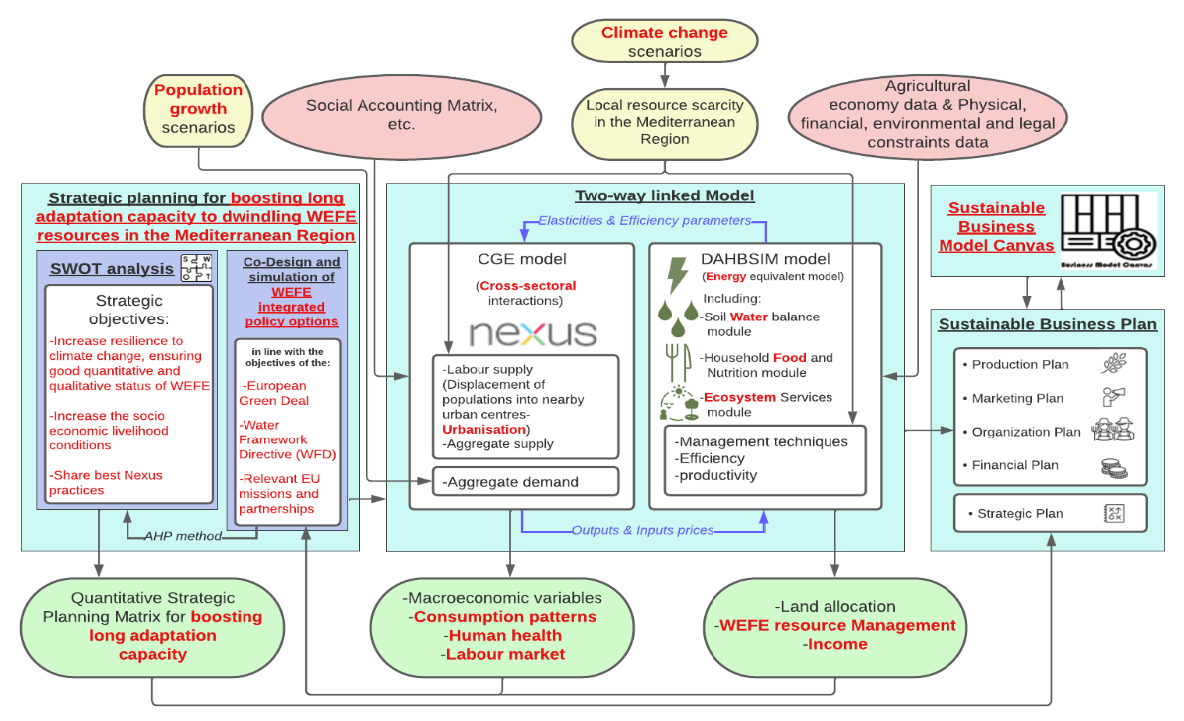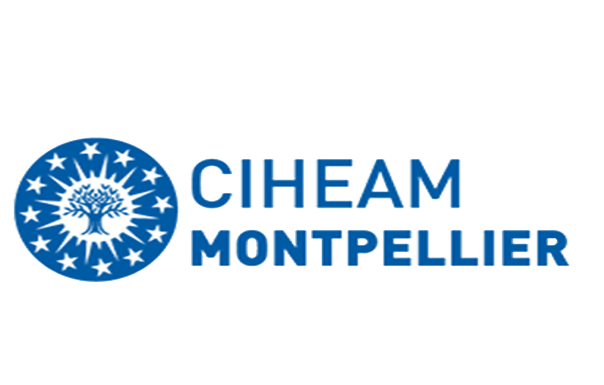The Mediterranean region has long been acknowledged as a region where the climate restricts the availability of water resources. The Mediterranean Basin's greatest consumer of water is agriculture. In total, 70% of the freshwater in the Mediterranean region is utilised for agriculture irrigation, which accounts for 85% of the region's agricultural productivity. The availability of water resources is expected to decrease in light of global and regional scenarios of population growth and climate change. Energy is the second most significant constraint on food production, with approximately 7% of commercial energy production being allocated to the management of freshwater supply.
The DIONYSUS project aims to co-design, test, and develop sustainable market solutions and operational adaptation solutions through innovative business-based models for the efficient and sustainable use of water-energy-food-ecosystem resources. This initiative will rely on local and regional initiatives, bring together and engage local and international stakeholders, and utilise a Cross-Sectoral Nexus adaptation tool to facilitate the transition to a Green Economy and Sustainable Development. In light of the primary trends for the next 30 years in climate, natural resources (water, soil), urbanisation (including migration and labour), markets (supply, demand, prices), and macro-economic variables (i.e., GDP, interest rates, investment in agriculture), this study is based on four demonstration sites (Egypt, Greece, Morocco, and Italy) and three replication sites (Algeria, Tunisia, and Turkey) that produce cornerstone agricultural products (i.e., cereal crops, fruits, vegetables, cotton, livestock, fodders, and other industrial crops).
DIONYSUS project will seek the abovementioned strategy through the following Specific Objectives (SO)

Establish four cross-sectorial demonstration sites (DS) and three replication sites (RS) to develop and implement sustainable market solutions and operational adaptation solutions in regions that produce cornerstone agricultural products for national and international markets, sustain local communities (e.g., local employment), and face dwindling WEFE resources. Take advantage of previous local initiatives that have supported operational innovations to establish seven cross-sectorial "Action-Panels" in the four DSs and three RSs.

This Action-Panel will be constructed on the foundation of pre-existing institutions in the 4 DSs and 3 RSs that have a wealth of experience in policy-influencing/policymaking, local communities, and stakeholder engagement. This approach is essential for the purpose of fostering cross-sectoral dialogue among the stakeholders who regulate, administer, and consume resources in the Nexus.

Encourage a participatory approach that will allow cross-sectoral stakeholders in four DSs to co-design and co-deploy WEFE Nexus-based adaptation solutions, which will include modifications to production and management practices, technologies, and processes. These solutions will be validated in DSs using decision support tools. The three RSs will be the context in which the most promising solutions will be adapted and tested for replication.

The development of a conceptual and evaluative tool in the form of an innovative web-based DSS platform, DIONYSUS-inov, that will serve as an innovative tool for: i) co-designing innovative optimized operational adaptation solutions and sustainable market solutions in the form of business models for the DSs and RSs stakeholders; ii) assessing the impact and feasibility of the aforementioned solutions at the DSs and RSs levels while capturing trade-offs, and the effects of population growth.

The "DIONYSUS Think-Tank" is a transformative initiative that has been established by important institutions with the objective of facilitating the development of the future strategies of the Mediterranean region. The DIONYSUS endeavor's discernments are poised to be scaled out and upscaled by this visionary entity, which will serve a dual role.




